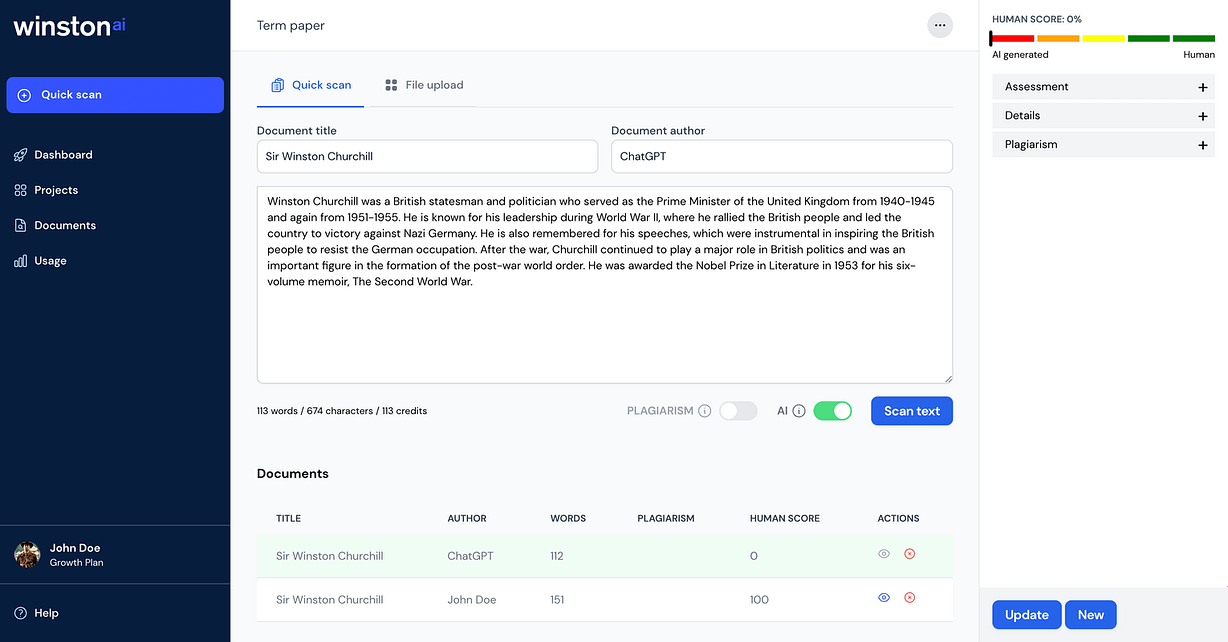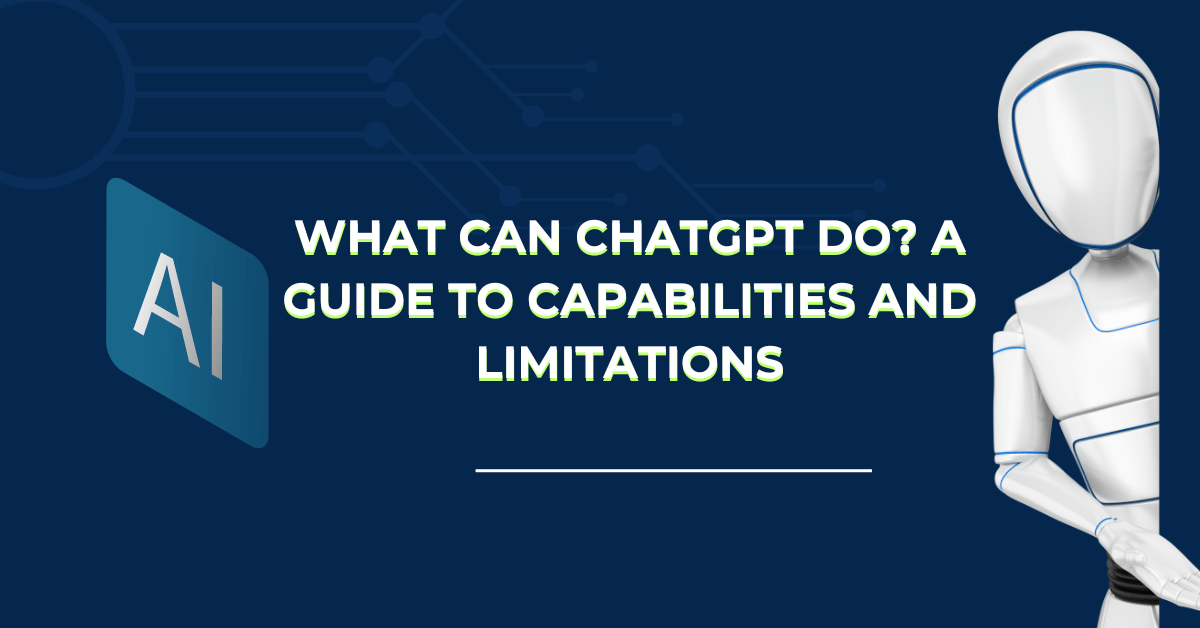Claude AI is an exciting new generative AI chatbot created by Anthropic, the makers of ChatGPT. Claude provides a similar conversational AI assistant experience as ChatGPT, allowing users to ask questions and get human-like responses on a wide range of topics. Since launching in February 2023, Claude has quickly grown in popularity as a more focused alternative to ChatGPT.
This guide will explain everything you need to know to get started with Claude AI, from signing up for access to using Claude responsibly. We’ll cover Claude’s capabilities compared to ChatGPT, integration options, use cases, limitations, and future possibilities as conversational AI advances. Let’s dive in to unlocking the potential of this promising new AI chatbot.
Signing Up for Claude AI Access
While ChatGPT is freely available to all, access to Claude AI is currently limited through a waitlist system. Here are steps to sign up and gain access:
- Go to the Claude AI website and click “Request Access”
- Provide your email and join the waitlist
- If selected, you’ll receive an invite email with a link to create your Claude account
- Sign up and verify your email to start using Claude AI
The signup process aims to gradually onboard new users while scaling Claude’s infrastructure responsibly. Patience may be required, but the waitlist helps ensure system reliability.
Using the Claude AI Web Interface
Once access is granted, the primary way to interact with Claude AI is through the web chat interface at claude.ai. The interface will be familiar to ChatGPT users:
- A text box at the bottom to enter your prompts
- Claude’s responses appear above in conversational bubbles
- You can rate responses and refine them through feedback
- The web preview works on desktops and mobile browsers
The minimalist web chat lets you converse naturally with Claude AI as you would with ChatGPT.
Integrating Claude AI into Apps and Sites
Claude AI also provides integration options for developers to embed Claude into their own apps and sites via API access. Some possibilities include:
- Building browser extensions with Claude AI chat
- Integrating Claude responses into customer support chatbots
- Enabling conversational interfaces on devices
- Automating workflows by activating Claude through webhooks
- Developing specialized “skills” and capabilities using Claude’s API
While early stage, Claude’s API access will expand over time to allow broader integrations.
Comparing Claude AI to ChatGPT
As a spin-off by the same Anthropic creators, Claude AI and ChatGPT share the same underlying AI architecture. However, some differences stand out:
- Claude focuses on harmless, honest dialogue – It aims to avoid potential harms through training approaches like reinforcement learning from human feedback.
- More constrained capabilities – Claude converses through a more directed, limited lens currently.
- Faster responses – Claude aims for snappier conversations owing to more efficient distilled models.
- Early preview stage – As an initial minimal viable product, Claude has room for improvement as its capabilities expand.
- Waitlisted access – Claude caps access to focus on safety, while ChatGPT is openly available.
In summary, Claude delivers a refined subset of ChatGPT’s broader conversational skills, with speed and quality as development priorities going forward.
Claude AI Use Cases
Some initial promising use cases for Claude AI include:
- Education – Claude shows potential for explaining concepts to students in a clear, engaging way.
- Customer Service – It can suggest thoughtful responses for common customer service inquiries when integrated into chatbots.
- Market Research – Claude could help generate surveys, analyze results, and infer insights about consumer trends.
- Healthcare – Medical professionals may use Claude to describe symptoms or medications to patients conversationally.
- Personal Assistance – For individuals, Claude can provide a helpful second opinion or explain topics of interest.
Getting the Most from Claude AI Conversations
Here are some tips for maximizing the value from your Claude AI chats:
- Frame inquiries clearly and avoid broad open-ended questions that can meander without focus.
- Ask Claude follow-up questions to clarify or expand on a concept.
- Provide explicit feedback when a response misses the mark so Claude can refine its replies.
- Look for Claude’s cues when it lacks confidence to avoid answers that may be incorrect or nonsensical.
Claude AI Capabilities and Limitations
It’s important to understand what Claude can and can’t do well currently:
Capabilities:
- Fluent conversational ability in a variety of domains
- Generating explanations of concepts that are easy for humans to understand
- Translating complex information into simple, engaging language
- Identifying and admitting gaps in its knowledge base gracefully
Limitations:
- Insufficient factual knowledge outside of 2021 training window
- Inability to reason extensively beyond surface patterns
- May occasionally generate incorrect or nonsensical statements
- Lacks real-world common sense and general wisdom
Responsible Practices When Using Claude AI
As with any AI system, using Claude responsibly is important. Some best practices include:
- Not treating its responses as infallible truth without verification
- Avoiding sharing harmful, unethical, dangerous or illegal content
- Providing constructive feedback to improve quality over time
- Limiting or avoiding deception, manipulation, or malicious use
- Considering equitable access and unintended impacts on people
- Reporting failures confidentially through proper channels
By keeping ethical considerations at the forefront, we can guide Claude toward increasingly helpful, honest and benign conversational abilities.
The Future of Claude AI
Claude AI represents just the beginning of Anthropic’s vision for safe, beneficial conversational AI aligned with human values. Some future capabilities on the roadmap include:
- Expanded knowledge through ongoing training
- Tighter integration with external data sources
- Conversing intelligently about specialized domains
- More natural open-ended dialogue capabilities
- Consistent persona and memory across conversations
- Democratized access to foundational AI technologies
Tips for Beginners with Claude AI
For those new to generative AI assistants, a few tips to get started:
- Take time exploring不同话题 – Claude can chat in both English and Chinese!
- Start with simpler questions to see range – “Explain quantum computing in simple terms”
- Provide feedback on responses to refine – “This doesn’t fully answer my question above”
- Check for acknowledgement of limitations – “I do not have enough information to provide a full explanation of that topic”
- Have reasonable expectations – Claude is still early in development and has flaws
The more we productively engage Claude with nuance, patience and care, the more utility it can provide responsibly.
Claude AI Compared to Other AI Assistants
How does Claude stack up against other conversational AI options?
ChatGPT: Claude has a more focused scope but shares advanced natural language capabilities and limitations with its parent ChatGPT.
Google Bard: Bard focuses on search, while Claude takes a generalist conversational approach. But both aim to improve on integrity and accuracy.
Alexa: Amazon’s Alexa excels at practical voice-based tasks. Claude is text-focused and more adept at nuanced conversations.
Replika: Replika aims to provide emotional companionship versus Claude’s informational conversational focus.
Limitations of Current Claude AI
Despite impressive conversations, key current limitations to bear in mind include:
- Gaps in factual knowledge beyond 2021 training data
- Susceptibility to hallucinated facts or non sequiturs
- Lack of complex reasoning skills
- No common sense understanding of the physical world
- Brittle failures from minor prompt variations
- Limited availability through waitlisting
- Requires ongoing human guidance and oversight
Advancing Claude AI through techniques like reinforcement learning from feedback should incrementally address these limitations over time.
Exciting Future Possibilities for Claude AI
Claude’s foundations establish a compelling trajectory for the technology. Some future possibilities as capabilities evolve include:
- Seamless natural conversations on any topic
- Deep expertise in specialized professional domains
- Ability to reason about complex interdisciplinary concepts
- Integrating real-time external data to enable timely awareness
- A trustworthy digital advisor on command for life’s challenges
- Democratized access to AI through models trained on open data
The future remains full of potential if we innovatively but prudently guide Claude’s ongoing development.
Read More Articles:
Conclusion
Claude AI represents an intriguing new entry in generative conversational AI that responsibly expands access to emerging technologies. Its trademark strengths in harmless, honest dialogue establish a thoughtful foundation for the future compared to predecessors like ChatGPT. While still an early work in progress, Claude sets a promising direction for ensuring such transformative AI systems remain human-centric in the years ahead. As Claude’s capabilities grow through techniques like reinforcement learning from feedback, we inch closer to an AI capable of conversing as naturally as a helpful human friend.
FAQs
Q: How can I gain access to try Claude AI?
A: You can request access by joining the waitlist at claude.ai. If selected, you’ll receive an email invite to create an account and start using Claude.
Q: What are the main ways Claude AI can be used or integrated?
A: Claude can be accessed through its web chat interface or integrated into apps and sites via its API. Some use cases include education, customer service, research, and personal assistance.
Q: What are some key differences between Claude AI and ChatGPT?
A: Claude focuses on safety, speed, and conversational quality. But both share advanced natural language foundations. Claude has more limited availability and scope.
Q: What are some best practices when interacting with Claude AI?
A: Ask clear, focused questions. Provide constructive feedback on responses. Check for acknowledgement of limitations. Use Claude responsibly and ethically. Have reasonable expectations as capabilities evolve.
Q: What exciting future capabilities could Claude AI gain with ongoing development?
A: Possibilities include seamless topic coverage, reasoning about complex concepts, integration of real-time data, consistent persona, specialized expertise, and democratized public access.



